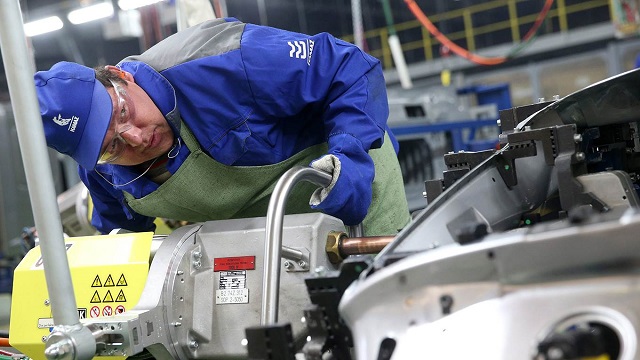
What to expect when, someday, thinking machines become so sophisticated that they will invent other machines
COMMENT | KENNETH ROGOFF | Most economic forecasters have largely shrugged off recent advances in artificial intelligence (for example, the quantum leap demonstrated by DeepMind’s self-learning chess program last December), seeing little impact on longer-term trend growth. Such pessimism is surely one of the reasons why real (inflation-adjusted) interest rates remain extremely low, even if the bellwether U.S. ten-year bond rate has ticked up half a percentage point in the last few months. If supply-side pessimism is appropriate, the recent massive tax and spending packages in the United States will likely do much more to raise inflation than to boost investment.
There are plenty of reasons to object to recent US fiscal policy, even if lowering the corporate-tax rate made sense (albeit not by the amount enacted). Above all, we live in an era of rising inequality and falling income shares for labour relative to capital. Governments need to do more, not less, to redistribute income and wealth.
It is hard to know what U.S. President Donald Trump is thinking when he boasts that his policies will deliver up to 6% growth (unless he is talking about prices, not output!). But if inflationary pressures do indeed materialise, current growth might last significantly longer than forecasters and markets believe.
In any case, the focus of economists’ pessimism is long-term growth. Their stance is underpinned by the belief that advanced economies cannot hope to repeat the dynamism that the U.S enjoyed from 1995-2005 (and other advanced economies a bit later), much less the salad days of the 1950s and 1960s.
But the doubters ought to consider the fact that many scientists, across many disciplines, see things differently. Young researchers, in particular, believe that advances in basic knowledge are coming as fast as ever, even if practical applications are taking a long time to develop. Indeed, a small but influential cult touts the Hungarian-American mathematician John von Neumann’s “singularity” theory. Someday, thinking machines will become so sophisticated that they will be able to invent other machines without any human intervention, and suddenly technology will advance exponentially.
If so, perhaps we should be far more worried about the ethical and social implications of material growth that is faster than humans can spiritually absorb. The angst over AI mostly focuses on inequality and the future of work. But as science fiction writers have long warned us, the potential threats arising from the birth of silicon-based “life” forms are truly frightening.
It is hard to know who is right: neither economists nor scientists have a great track record when it comes to making long-term predictions. But right now, and leaving aside the possibility of an existential battle between man and machine, it seems quite plausible to expect a significant pickup in productivity growth over the next five years.
Consider that the main components of economic growth are increases in the labour force, increases in investment (both public and private), and “productivity,” namely the output than can be produced with a given amount of inputs, thanks to new ideas. Over the past 10-15 years, all three have been dismally low in the advanced economies.
Labour force growth has slowed sharply, owing to declining birth rates, with immigration failing to compensate even in pre-Trump America. The influx of women into the labour force played a major role in boosting growth in the latter part of the twentieth century. But now that has largely played out, although governments could do more to support female labour force participation and pay equity.
 The Independent Uganda: You get the Truth we Pay the Price
The Independent Uganda: You get the Truth we Pay the Price


